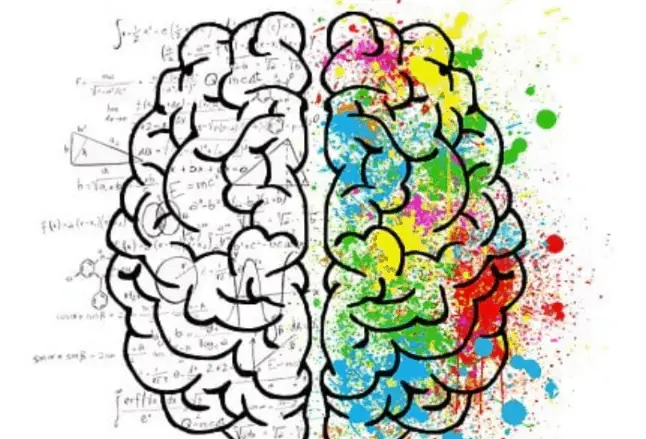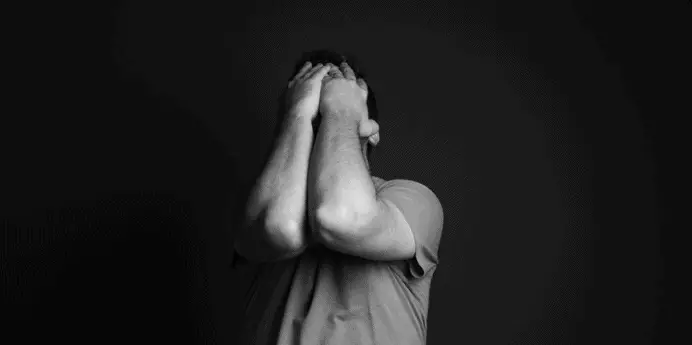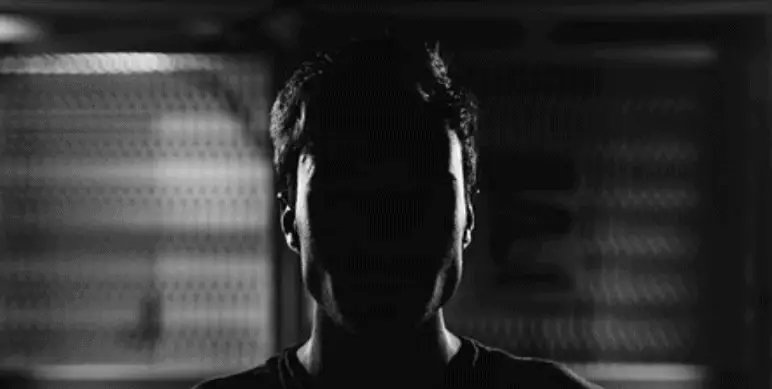Last Updated on December 20, 2022
Do you have friends and family members dealing with other people always playing the victim? Or are you the one struggling with this issue your entire life?
Either way, having a victim mentality is problematic. And dealing with it can be frustrating. So let’s do something about it.
In this article, let’s go over everything you need to know about victim mentality. We’ll talk about the definition of victim mentality, signs, causes, and effects. Let’s also talk about if this mentality affects a person’s sense of importance, how to get rid of it, and more.
This way, you’ll know exactly what to do to resolve the problem.
Table of Contents
What is victim mentality?
A person with a victim mentality, or a victim mindset, victimization mentality, victim complex, or victim’s syndrome, believes life happens to them rather than for them. They have this sense of moral elitism. And they believe they’re never wrong.
Here are the common actions of a person with a victim’s state of mind:
- They neglect the importance of self-care – They don’t eat right, sleep well, or exercise. They’re in a terrible health condition and they believe somebody else should do something about it.
- They don’t invest in themselves – They allow their full potential go down the drain. For them, their goals are only achievable if someone achieves these goals for them.
- They don’t want to do any heavy-lifting – They may not even want to work at all. And they’ll find “logical” excuses to avoid working.
Victim complex vs. martyr complex
Sometimes, a person with a victim’s mindset can be confused for someone with a martyr complex. While they’re toxic behaviors and at the same time, problematic conditions, a victim’s mindset and martyr complex are different.
Here are the differences between a victim’s mindset and martyr complex:
- Personal accountability – A person with a victim’s mindset may take things personally. Unlike the other person, the one with a martyr complex, they won’t take the initiative to do things.
- The need to be a hero – People with a victim mindset accept they’re never going to be heroes in a situation. Meanwhile, those with a martyr complex would make sacrifices to be recognized heroes.
- The need to magnify stories – People with a victim mindset would magnify negativity. Meanwhile, those with a martyr complex would magnify their positive roles in a situation.
Victim syndrome vs. gaslighting
A victim’s mentality is a broad category, and a person with a victim’s mental state may be a victim of gaslighting.
Here are the ways that show victims were gaslighted:
- They were repeatedly lied to – They were made to believe false things. If they developed negative thought patterns, they were taught these thoughts were okay.
- They learned helplessness – They were raised to be helpless or always dependent on others. Either way, they learned poor values from a young age.
- They were forced to break rules – Authority figures taught them rules were unimportant. And they learned to ignore — or even violate — boundaries.
The psychology of victim mentality
People with a victim mindset are mentally paralyzed. They believe that life is out to deliberately hurt them, and they think there’s no such thing as fairness. They blame other people for their unhappiness and low level of life satisfaction.
This is how behavioral scientists describe their way of thinking:
“The victim mindset will have you
dancing with the devil, then complaining
that you’re in hell.”
What are the typical thoughts of a person with a victim mindset?
The similarity between actual victims and people with a victim’s state of mind is they believe they’re at the complete mercy of others.
The difference? People with a victim’s mind are not genuinely powerless. Actual victims, meanwhile, are powerless.
Here are the typical thoughts of a person with a victim mentality:
- They think the world is out to get them – They don’t adopt a growth mindset, and they stop trying when the going gets tough. And they see challenges and opportunities as permanent roadblocks to a better life.
- They engage in negative thinking and self-talk – Self-doubt is intimately connected to victimhood. They find destructive beliefs and a negative outlook on life as normal because they feel they’re not worthy of anything good.
- They feel they’re never in control – The primary reason for their powerlessness is their tendency to focus on things they can’t change.
What are the causes of a victim mentality?
The most common cause of victimhood is having flawed parents or authority figures — parents who force their children into playing the victim card. It’s either that or these authorities subjected their children to physical abuse or sexual abuse.
In this case, it’s an acquired personality trait. Especially if the “victims” are in their formative years (not yet 18+ years old), the children are likely to develop the mentality of typical victims.
Here are the other common causes of a victim mentality:
- Past trauma and personality disorder – Emotional pain or trauma disrupts a person’s sense of control. A personality disorder, specifically Narcissistic personality disorder, may also be the result of trauma and the cause of a victim mindset.
- Limiting beliefs – People with a victim mindset believe they can’t do anything unless someone gave them the order to do it. They can use their mindset as a survival mechanism.
- A lack of self-confidence and self-compassion- People who see themselves as victims may struggle with self-confidence. They might think things like, “I’m not smart enough to get a better job”. They see themselves as hopeless individuals, and for them, being hopeless individuals is acceptable.
Telltale signs of victim mentality
Acting victimized even if the people involved aren’t genuinely victims is a coping mechanism. Often, it’s used by abusive and/or sociopathic people who use this role to keep a tight emotional leash on those close to them.
Here are the telltale signs that show someone has a victim’s state of mind:
- They engage in self-pity – They believe they can’t have anything they want in life. They feel sorry for themselves and would understand it if other people feel sorry for them.
- They ignore complicated and/or messy emotions – They believe messy emotions will only complicate their life. So they automatically bottle up some feelings.
- They “demand” sympathy from others – They believe other people should look down on their life as much as they look down on it. In the hope of improving their situation, they cling to other people and their only savior is other people’s sympathy.
Self-pity and other effects of being a victim
A vexing behavior of people with a victim’s state of mind is their ability to keep complaining. It’s a compulsion and they feel as if complaining is the right thing to do.
Here are the other effects of victimhood:
- Frustration, anger, and resentment – A victim’s state of mind can take a toll on emotional well-being. Some people adopt the mentality of victims just because they can.
- A sense of hopelessness – People who feel victimized feel they lack the power to change their situation. They should be aware their problem puts them in a state of emotional distress.
- Not seeking possible solutions and engaging in self-sabotage – They refuse to see that not all negative situations are completely uncontrollable. Tough as it is, they remain blind to the fact that facing problems can help with acknowledging and processing painful emotions.
Does a victim’s mindset affect self-esteem?
In addition to the effects of a victim’s mental state mentioned above, possessing this negative state of mind also affects a person’s sense of importance and self-respect.
Here are some points to ponder on:
- They have nothing to be proud of in their lives – They have no achievements. And they don’t attempt to enter new chapters of their lives.
- They don’t possess any positive qualities – Other people don’t find them the least bit likable.
- They feel unhappy – They’re deprived of any joy. And they’re prone to developing depression, severe sadness, and anxiety.
How to get rid of victim mentality
The majority of people who play the victim role do so unconsciously or unintentionally. However, while not done on purpose, the behavior needs to be treated. Just because they didn’t do anything wrong doesn’t mean there’s no problem.
Overcoming victim mentality varies from person to person.
The discussions below are categorized into two: First, according to the treatment you can give to yourself, and the treatment reserved for others.
Here are the ways on how to get rid of your victim’s state of mind:
- Acknowledge the problem – Admitting you have a flawed mentality isn’t easy. Do it anyway.
- Focusing on improving yourself – Take part in activities good for you physically and mentally such as, cycling and baking. Ask the help of your experienced acquaintances if you need it.
- Get productive – Distract yourself from thoughts you’re a victim. Make sure they’re distractions that’ll benefit you in the long run.
Here are the ways on how to help other people get rid of their problematic mentality:
- Consider where they’re coming from – Having a victim mentality doesn’t excuse bad behavior. Point out their wrongdoing and help them overcome it with empathy and compassion.
- Offer encouragement to seek treatment – Encourage them to help themselves or consult with a therapist. And volunteer to be in their support network.
- Encourage personal accountability – Include the ‘victim’ in a project and say they’re responsible for completing it. If they’re successful at completing it, congratulate them.
When should a person with a victim mentality seek medical treatment?
Dealing with a victim’s mentality can be annoying. Sometimes, it’s all there is to it. Other times, however, it’s best to seek the help of behavioral scientists, psychiatrists, and other medical professionals.
Here are the times when they need to seek medical attention:
- When it’s getting uncontrollable – If a person’s victim mentality is severe, medical professionals can help salvage their case.
- When self-treatments won’t work – If they tried measures to help them treat their victim mentality and these don’t work, they need professional help.
- When a person wants a change – If a person with victim mentality wants to improve their mindset, they should ask reliable professionals to help them.
Why do some people with a victim mentality choose not to seek treatment?
While living with a victim mentality is problematic, some people don’t seek treatment. They live with the condition their entire lives as a result.
Here are the common reasons they don’t seek treatment.
- Unawareness – They don’t know they have a victim mentality. And nobody — not even family and friends — bring it to their attention.
- Secondary gain – Having a victim mentality gives them a free ticket to benefits. They gain sympathy, funds, attention, and more because of it.
- Satisfaction of unconscious needs – Their unconscious mind seeks validation for an unfortunate life situation. And having a victim mentality invites other people to validate their pain.
Can a victim mentality be cured?
Living life with a victim’s mentality can be stressful. Without a doubt, a person can seek treatment for it. However, can it permanently go away?
Here are the arguments on this subject:
- Yes – Factors such as lifestyle, support network, and changes in situations can make victim mentality curable. Also, the younger a person is, the better their chances are at correcting their behavior.
- No – If a person is too old to be aware of problematic behavior, there may not be a cure to his condition.
- It depends on a person – The result is subjective, and it depends on a person’s will to cure their problematic behavior.
Conclusion
The tricky part about victim mentality? The contradictions it introduces to a person’s life.
While it makes someone feel powerless, it also gives them power: Power to avoid responsibility, power to feel “righteously” sad, and power to manipulate other people.
Most people would dismiss a person with a victim mentality. The best thing to do, though, is to offer to help them.
As tempting as it can be, you should overlook their annoying habits. And instead, do your best to show them kindness.
Remember that a person with a victim’s state of mind is also a victim. They have mental health issues, and while they may not ask for it, they could use — and will appreciate — your help.
She freelances as a web content writer from home. And she lives with the prettiest dog in the world.





